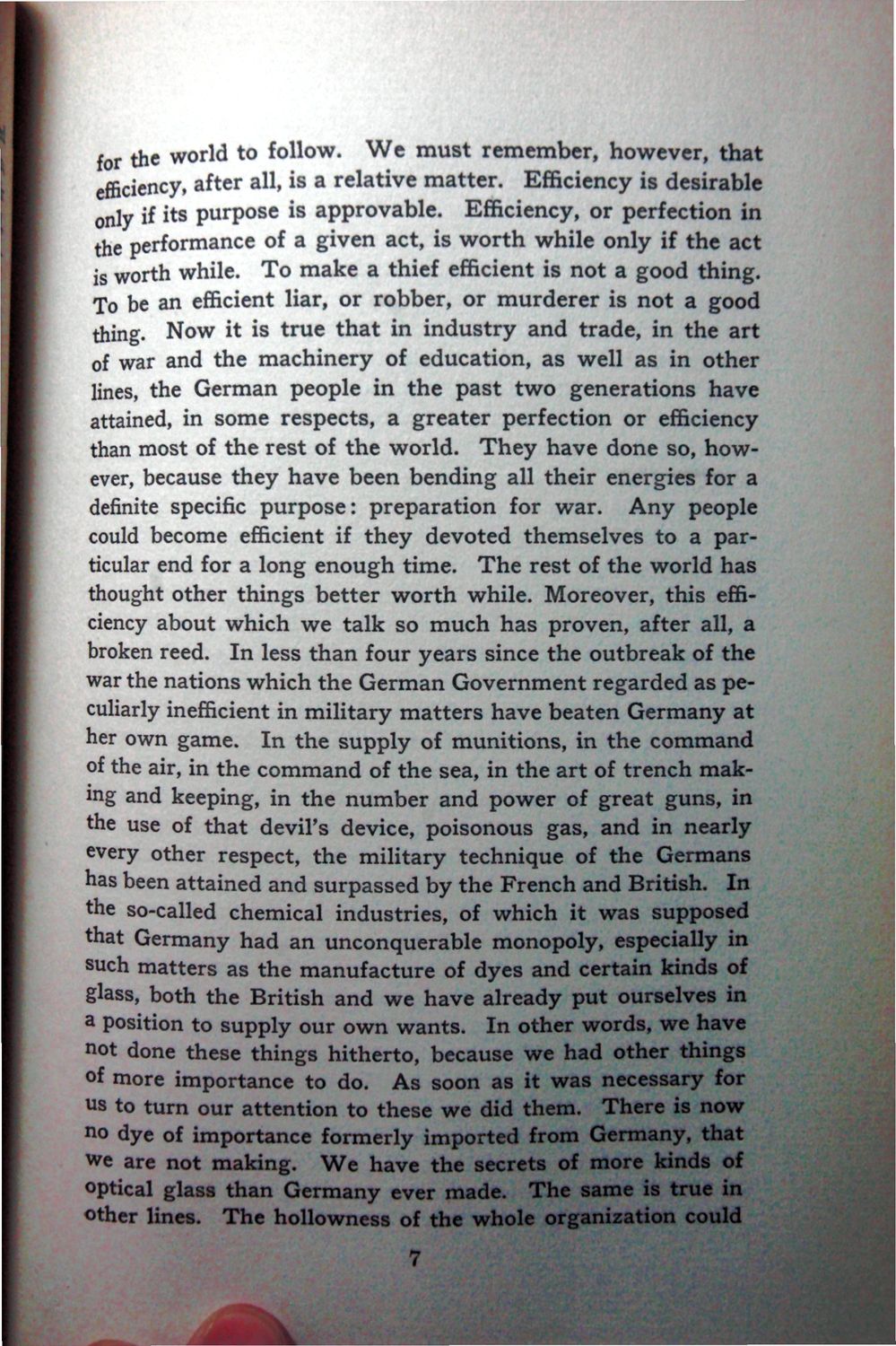| |
| |
Caption: War Publications - WWI Compilation 1923 - Article 25
This is a reduced-resolution page image for fast online browsing.

EXTRACTED TEXT FROM PAGE:
for the world to follow. W e must remember, however, that efficiency, after all, is a relative matter. Efficiency is desirable only if its purpose is approvable. Efficiency, or perfection in the performance of a given act, is worth while only if the act is worth while. To make a thief efficient is not a good thing. To be an efficient liar, or robber, or murderer is not a good thing. Now it is true that in industry and trade, in the art of war and the machinery of education, as well as in other lines, the German people in the past two generations have attained, in some respects, a greater perfection or efficiency than most of the rest of the world. They have done so, however, because they have been bending all their energies for a definite specific purpose: preparation for war. Any people could become efficient if they devoted themselves to a particular end for a long enough time. T h e rest of the world has thought other things better worth while. Moreover, this efficiency about which we talk so much has proven, after all, a broken reed. In less than four years since the outbreak of the war the nations which the German Government regarded as peculiarly inefficient in military matters have beaten Germany at her own game. In the supply of munitions, in the command of the air, in the command of the sea, in the art of trench making and keeping, in the number and power of great guns, in the use of that devil's device, poisonous gas, and in nearly every other respect, the military technique of the Germans has been attained and surpassed by the French and British. In the so-called chemical industries, of which it was supposed that Germany had an unconquerable monopoly, especially in such matters as the manufacture of dyes and certain kinds of glass, both the British and we have already put ourselves in a position to supply our own wants. In other words, we have not done these things hitherto, because we had other things of more importance to do. As soon as it was necessary for us to turn our attention to these we did them. There is now n o dye of importance formerly imported from Germany, that we are not making. W e have the secrets of more kinds of optical glass than Germany ever made. The same is true in other lines. The hollowness of the whole organization could 7
| |